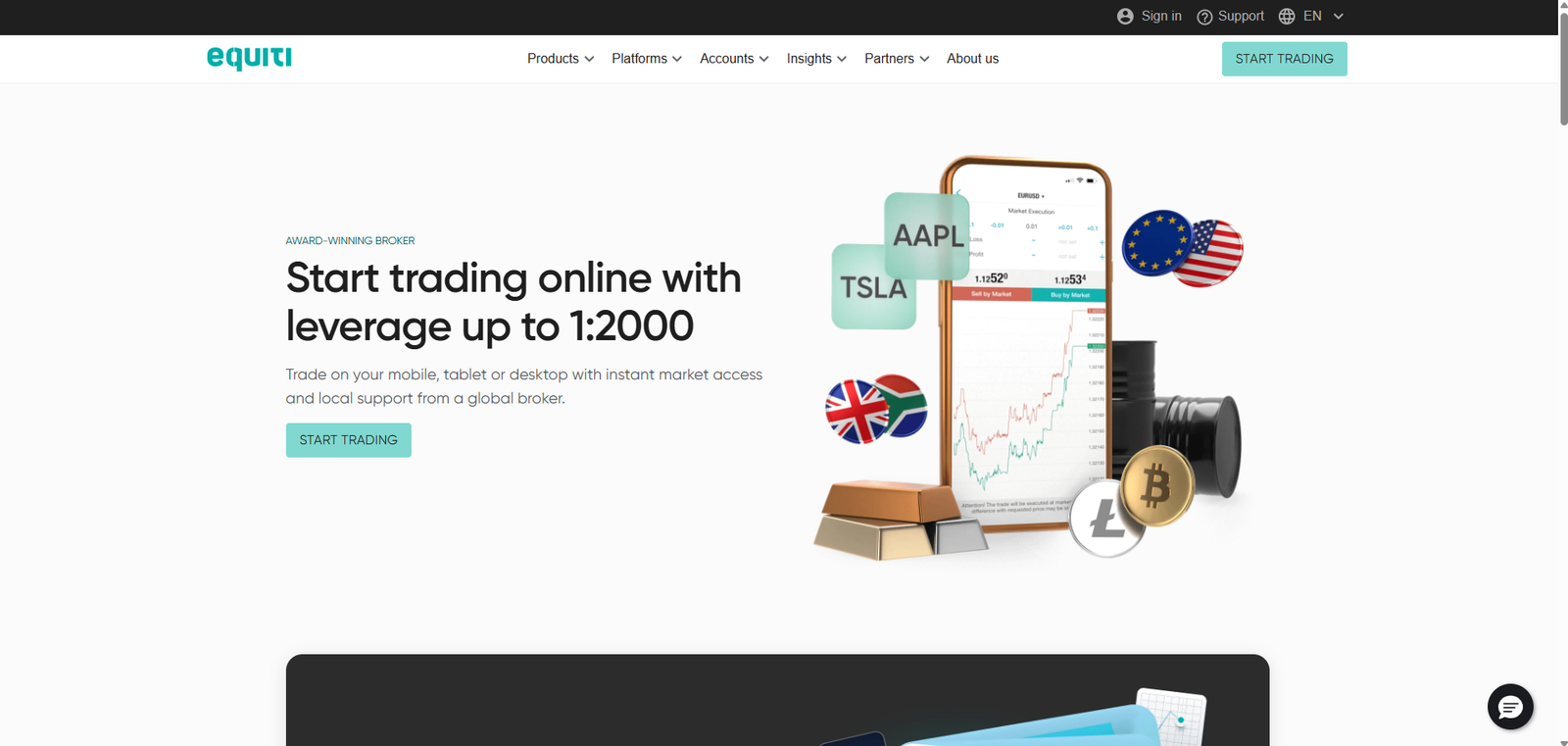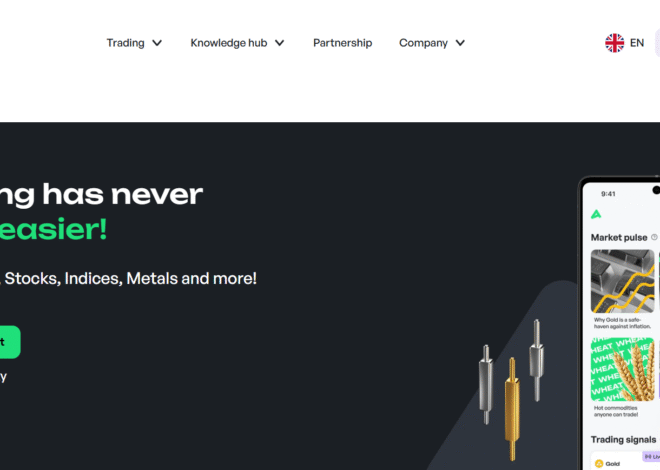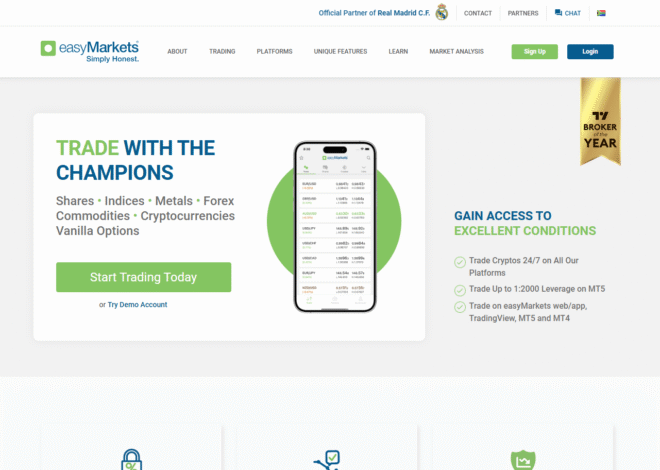
Equiti EXPOSED: Read This Critical Warning Before Investing
The world of online trading promises unprecedented opportunities for financial growth, but beneath the glossy marketing and enticing promises, a darker side often lurks. As investigative journalists specializing in financial misconduct, our mission is to peel back these layers and expose platforms that may be preying on unsuspecting investors. Today, our sights are set on Equiti, a broker that has garnered significant attention—and a concerning volume of negative feedback—across various financial communities. This comprehensive investigation aims to arm you with the critical information you need to make informed decisions and, more importantly, to protect your hard-earned capital. Is Equiti a legitimate pathway to profit, or a perilous trap? Our findings suggest a need for extreme caution. We delve into regulatory inconsistencies, a barrage of user complaints, questionable operational transparency, and the potential for deceptive practices that could jeopardize your investments. Before you commit a single dollar, this urgent warning about Equiti is essential reading.
Regulatory Warnings and Compliance Issues Surrounding Equiti
One of the foundational pillars of trust in any financial institution is its regulatory standing. Reputable brokers operate under the strict oversight of established financial authorities, providing a layer of protection for their clients. Our investigation into Equiti reveals a complex and often opaque regulatory landscape that raises significant red flags. While Equiti often highlights its licenses in various jurisdictions, a deeper dive uncovers potential loopholes and inconsistencies that investors must be acutely aware of.
Equiti’s Licensing and Jurisdictional Loopholes
Equiti operates through several entities, each purportedly licensed in different regions. For example, Equiti Group might cite regulation by the Financial Conduct Authority (FCA) in the UK, the Cyprus Securities and Exchange Commission (CySEC), or the Jordan Securities Commission (JSC). While these licenses sound reassuring on the surface, the crucial detail lies in which specific entity a client is onboarding with. Often, clients, particularly those from regions with less stringent local regulations, are directed to entities operating under less robust oversight, such as those registered in offshore jurisdictions.
- Tier-1 vs. Offshore Regulation: The difference between a Tier-1 regulator like the FCA or ASIC and an offshore regulator (e.g., in Seychelles or Mauritius) is monumental. Tier-1 regulators impose strict capital requirements, client fund segregation rules, and robust dispute resolution mechanisms. Offshore regulators, while technically providing a license, often offer significantly less protection and oversight. Investors must verify which specific Equiti entity they are dealing with and the corresponding regulatory body.
- Lack of Transparency: It is not always immediately clear which regulatory body governs a client’s account, leading to confusion and potential misdirection. This lack of clear, upfront disclosure about the specific regulatory entity can be a deliberate tactic to avoid accountability under stricter regimes.
- Past Warnings and Enforcement: While direct public enforcement actions against Equiti entities might not always be widely publicized, the general landscape of offshore-regulated brokers is rife with warnings from major financial watchdogs. The principle here is that if a broker actively steers clients away from well-regulated entities, it often signals an intent to operate with less scrutiny.
Concerns Regarding Client Fund Segregation with Equiti
A critical component of investor protection is the segregation of client funds. This means that a broker’s operational capital is kept entirely separate from client deposits, ensuring that in the event of the broker’s insolvency, client funds are protected and can be returned. While Equiti claims to segregate client funds, the effectiveness and enforceability of this promise can vary wildly depending on the regulatory body overseeing the specific entity. In less regulated jurisdictions, the mechanisms for ensuring true fund segregation and client compensation are often weak or non-existent, leaving investors vulnerable. This concern is amplified when considering the frequency of withdrawal issues reported by users, which we will detail further.
Analysis of Equiti User Complaints and Negative Reviews
The most direct and often painful insights into a broker’s operations come from its users. Our extensive review of online forums, consumer protection websites, and social media platforms reveals a troubling pattern of complaints against Equiti. These aren’t isolated incidents but recurring themes that paint a concerning picture of the platform’s reliability and ethical standards.
Common Themes in Equiti Complaints: Fund Access and Support
Across numerous platforms, a consistent narrative emerges: Equiti users frequently report significant difficulties accessing their funds. This is, without doubt, the most alarming red flag for any financial service provider.
- Protracted Withdrawal Processes: Many users describe lengthy, unexplained delays in processing withdrawal requests. What should be a straightforward transaction often devolves into weeks, or even months, of waiting, with funds stuck in limbo.
- Unjustified Account Freezes: There are multiple reports of Equiti accounts being frozen without clear explanation, often coinciding with withdrawal attempts. Users are left unable to trade or access their capital, citing vague reasons from the platform such as “security checks” or “compliance reviews.”
- Unresponsive Customer Support: When users attempt to resolve these issues, they are often met with unhelpful, evasive, or entirely unresponsive customer support. This lack of effective communication exacerbates the frustration and financial distress experienced by clients. Many report receiving generic responses or being passed between different departments without any tangible progress.
- Requests for Excessive Documentation: In some cases, Equiti reportedly demands an unreasonable amount of personal and financial documentation during the withdrawal process, far beyond standard KYC (Know Your Customer) requirements. This can be a delaying tactic, frustrating users into abandoning their withdrawal attempts.
Case Studies: Equiti’s Impact on Individual Investors
While we cannot disclose specific user identities, the aggregate of individual stories forms a compelling narrative. For instance, one user reported attempting to withdraw a substantial profit after several successful trades with Equiti. Initially, the withdrawal was approved, but days turned into weeks with no funds appearing. Subsequent inquiries were met with requests for additional verification documents, then a sudden account freeze, citing “irregular trading patterns.” The user, convinced they had traded legitimately, was left without access to their capital and no clear path to resolution. Such accounts are not isolated but echo across various complaint platforms, suggesting a systemic issue rather than mere isolated incidents. This pattern of behavior is highly characteristic of scam operations, where the goal is to make it as difficult as possible for clients to retrieve their money. For more information on identifying such schemes, refer to our guide on [Internal Link to How to Spot a Trading Scam].
Deceptive Marketing Tactics and Misleading Claims by Equiti
To attract new clients, many brokers engage in aggressive marketing. However, with Equiti, there are concerns that these tactics cross the line into deceptive practices, creating unrealistic expectations and obscuring potential risks.
Aggressive Sales Tactics and Unrealistic Promises by Equiti
Reports indicate that Equiti‘s marketing and sales teams may employ high-pressure tactics. Potential clients are often bombarded with calls and emails, pushing them to deposit funds quickly.
- Guaranteed Returns and Low Risk: A common deceptive practice is the promise of high returns with minimal risk. In the volatile world of CFD and Forex trading, such guarantees are not only unrealistic but fundamentally misleading. Legitimate brokers emphasize the inherent risks of trading.
- Bonuses and Promotions with Hidden Terms: Equiti may offer attractive bonuses or promotional incentives for new deposits. However, the terms and conditions attached to these bonuses are often opaque or buried in fine print, making it incredibly difficult to actually withdraw any profits derived from them. These terms frequently include exorbitant trading volume requirements that are nearly impossible to meet, effectively trapping client funds.
- Fake Testimonials and Endorsements: While difficult to verify definitively, the online trading space is rife with fake testimonials. Investors should be wary of any broker, including Equiti, that heavily features overly enthusiastic, generic testimonials without verifiable sources.
The Illusion of Security with Equiti
Equiti often projects an image of a secure, technologically advanced platform. However, numerous user reports contradict this polished facade. The platform’s perceived security is often undermined by:
- Unexplained Account Activity: Some users have reported suspicious trading activity or changes in their account settings that they did not authorize, raising questions about the platform’s internal security protocols.
- Technical Glitches at Critical Moments: There are anecdotes of the Equiti platform experiencing “glitches” or freezing during volatile market movements, often leading to significant losses for traders who cannot manage their positions. This leads to accusations of manipulation, whether intentional or due to inadequate infrastructure.
Withdrawal Problems: A Major Red Flag for Equiti Users
As highlighted earlier, withdrawal issues are perhaps the most damning indictment against any financial service provider. For Equiti, these problems appear to be systemic, manifesting in various forms that ultimately prevent clients from accessing their legitimate earnings or initial capital.
Equiti’s Resistance to Payouts
The core of the issue often lies in what appears to be a deliberate strategy to resist payouts. When a broker makes it excessively difficult for clients to withdraw funds, it immediately raises suspicions of a “scam” or “fraudulent” operation.
- Shifting Goalposts for Verification: Users describe being asked for one set of documents, providing them, only to be asked for another, then another, in an endless loop. This ‘shifting goalposts’ tactic is classic for delaying and ultimately denying withdrawals.
- Disputed Trades and Unexplained Losses: Some Equiti users report that their profitable trades are suddenly reversed or that their account balance mysteriously diminishes, with Equiti citing “technical errors” or “breaches of terms and conditions” without adequate proof or explanation. This directly impacts the amount available for withdrawal.
- Ignoring Regulator Complaints: While clients may report their issues to the relevant regulatory bodies Equiti claims to be licensed by, the effectiveness of these complaints varies significantly, especially when dealing with less stringent offshore regulators.
Account Freezes and Unexplained Losses with Equiti
The tactic of freezing accounts without clear justification is a severe breach of trust. When an Equiti account is frozen, the client loses all control over their funds. This often occurs when a client tries to withdraw a significant amount or after a period of successful trading. The explanations provided by Equiti, if any, are often vague, citing “risk management,” “compliance,” or “anti-money laundering (AML)” protocols without providing specific evidence or a timeline for resolution. This leaves clients in a state of limbo, with their capital inaccessible and their financial future uncertain. Such actions are highly uncharacteristic of a reputable broker and align closely with the modus operandi of unregulated or fraudulent entities.
The Equiti Platform: Technical Glitches and Execution Failures
Beyond the regulatory and customer service issues, the actual trading experience on the Equiti platform itself has been a source of significant frustration and financial loss for many users.
Slippage and Requotes on the Equiti Platform
Slippage occurs when a trade is executed at a different price than intended. While some slippage is normal in volatile markets, excessive or consistently negative slippage (always to the trader’s disadvantage) raises concerns. Equiti users have reported:
- Frequent Negative Slippage: Trades consistently executing at a worse price than clicked, particularly during market-moving news events.
- Excessive Requotes: Being constantly requoted (offered a new, worse price) when attempting to execute trades, making it impossible to enter or exit positions at desired levels. This can be a tactic to prevent profitable trades or force losses.
Unanswered Support Queries at Equiti
Beyond withdrawal issues, general support for technical problems, platform navigation, or trading queries also appears to be severely lacking. Users report:
- Long Wait Times: Prolonged waits for responses via email, chat, or phone.
- Generic, Unhelpful Responses: Customer service agents providing pre-written, unhelpful replies that do not address the specific issue.
- Language Barriers: Inconsistent language proficiency among support staff, further complicating communication for non-English speakers.
This poor support ecosystem means that when technical issues arise on the Equiti platform, traders are often left to fend for themselves, leading to missed opportunities and avoidable losses.
The Hidden Costs and Fees of Trading with Equiti
Another area of concern revolves around the transparency and fairness of Equiti‘s fee structure. While all brokers charge fees, hidden or excessive charges can significantly erode a trader’s profits.
- High Spreads and Commissions: While Equiti may advertise competitive spreads, some users report variable spreads that widen significantly during trading, leading to higher costs per trade than anticipated.
- Inactivity Fees and Maintenance Charges: Some brokers impose fees for inactive accounts. It’s crucial for Equiti users to scrutinize terms for such charges, as they can quickly deplete smaller accounts.
- Conversion Fees and Other Charges: When depositing or withdrawing funds in a currency different from the account’s base currency, Equiti may apply unfavorable conversion rates or additional processing fees that are not clearly disclosed upfront. These “hidden” costs can significantly reduce the actual amount received by the client upon withdrawal. Understanding the true cost of trading is vital, and a lack of transparency from Equiti in this regard is a serious red flag.
What to Do If You’ve Been Affected by Equiti’s Practices
If you believe you have been a victim of misleading practices, withdrawal issues, or outright fraud by Equiti, it is crucial to act swiftly and systematically.
- Document Everything: Keep detailed records of all communications with Equiti (emails, chat transcripts, phone call logs), transaction histories, deposit confirmations, and screenshots of your trading account. This evidence will be invaluable.
- Attempt Formal Resolution: Exhaust Equiti‘s internal complaint resolution process. Send formal letters or emails clearly stating your issue and desired resolution. While this may not yield immediate results, it establishes a paper trail.
- Contact Relevant Regulators:
- Identify the specific Equiti entity you dealt with and its primary regulator.
- File a formal complaint with that regulatory body (e.g., FCA, CySEC, ASIC). Be aware that offshore regulators may have limited power or willingness to intervene effectively. You can find more information on regulatory bodies at sites like the Financial Conduct Authority (FCA).
- Seek Legal Counsel: For significant losses, consult with a lawyer specializing in financial fraud or consumer protection. They can advise on the feasibility of legal action or arbitration.
- Report to Consumer Protection Agencies: File a report with consumer protection agencies in your country. While they may not recover funds directly, they can help build a case against fraudulent entities.
- Share Your Experience: Report your experience on reputable consumer review sites and financial forums. Your testimony can warn others and contribute to a broader understanding of Equiti‘s practices. Consider sharing your story with financial news outlets or investigative journalists. This collective action can put pressure on such platforms. For general advice on protecting your investments, see our article on [Internal Link to Protecting Your Investments Online].
Conclusion: A Resounding Warning Against Equiti
Our comprehensive investigation into Equiti uncovers a distressing pattern of regulatory ambiguities, pervasive user complaints regarding fund access, potentially deceptive marketing, and concerning operational practices. The sheer volume and consistency of issues reported by clients—ranging from protracted withdrawal delays and unexplained account freezes to unresponsive customer support and questionable trading conditions—paint a grim picture. While Equiti may present a facade of legitimacy through various licenses, the practical experience of many investors suggests a platform fraught with significant risks.
For any financial platform, the inability to reliably withdraw funds, coupled with a lack of transparency and a pattern of unaddressed complaints, are the most critical warning signs. These are not minor inconveniences; they are fundamental breaches of trust that can lead to devastating financial losses. We urge all potential investors to exercise extreme caution and conduct thorough due diligence before considering Equiti. Based on our findings, the risks associated with Equiti far outweigh any perceived benefits. Protect your capital by choosing brokers with impeccable regulatory records, transparent operations, and consistently positive, verifiable client feedback. Do not become another statistic in the growing list of those who have faced difficulties with Equiti. If you have experienced issues, report them to the relevant authorities immediately. Your vigilance is your best defense against potential financial misconduct.
External Links Reference Table
| Anchor Text | URL |
|---|---|
| Financial Conduct Authority (FCA) | https://www.fca.org.uk/ |
| Australian Securities and Investments Commission | https://www.asic.gov.au/ |
| Reuters Financial News | https://www.reuters.com/business/finance/ |


